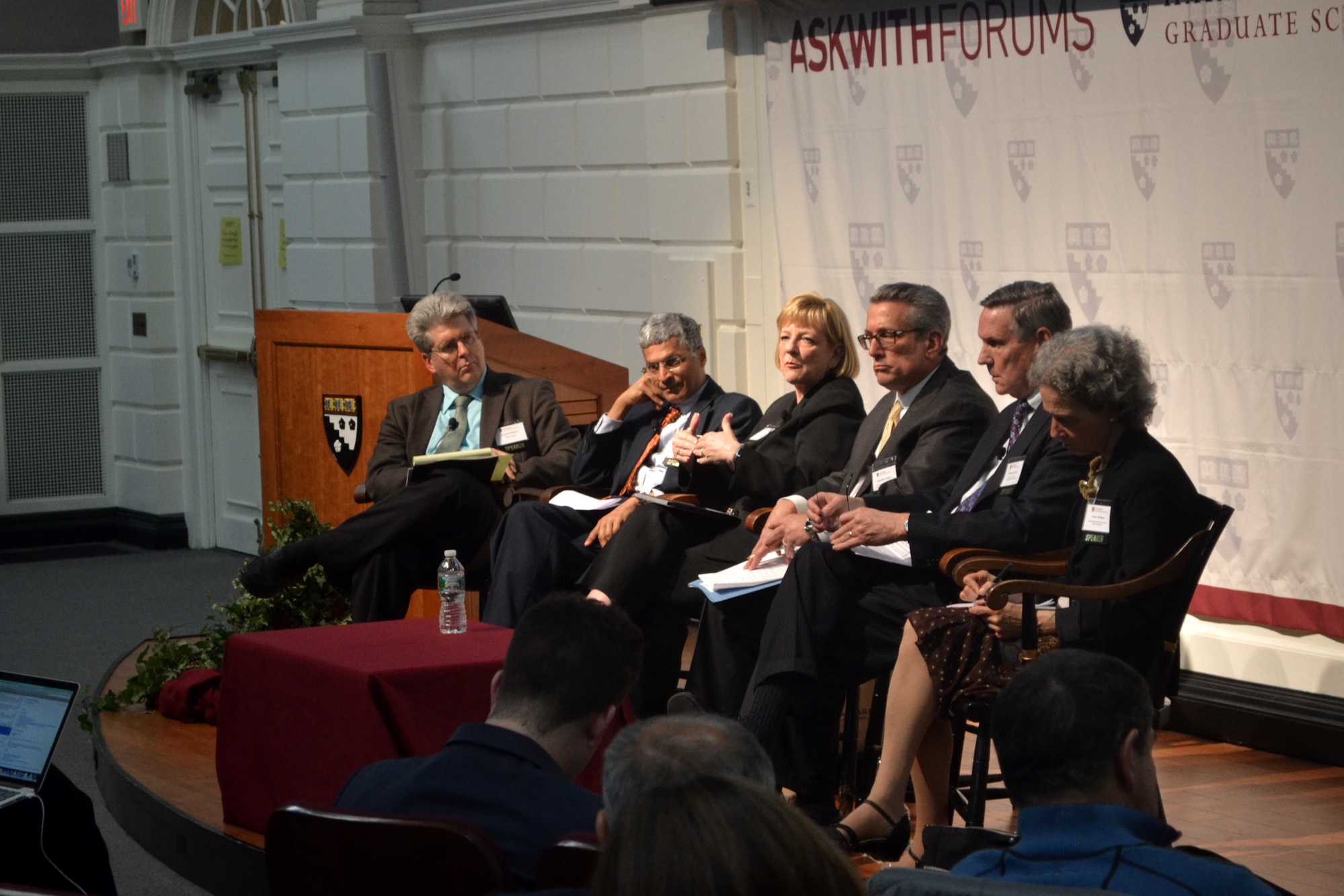
News
Harvard Researchers Develop AI-Driven Framework To Study Social Interactions, A Step Forward for Autism Research

News
Harvard Innovation Labs Announces 25 President’s Innovation Challenge Finalists

News
Graduate Student Council To Vote on Meeting Attendance Policy

News
Pop Hits and Politics: At Yardfest, Students Dance to Bedingfield and a Student Band Condemns Trump

News
Billionaire Investor Gerald Chan Under Scrutiny for Neglect of Historic Harvard Square Theater
Askwith Forum Focuses on Analysis, Improvement of Modern Education


As part of a three-day think tank on education, a panel of professors and specialists convened in Longfellow Hall Thursday afternoon for a public forum titled “Educational Challenges of the 21st Century.”
Moderated by Graduate School of Education professor Fernando M. Reimers, the panel began with five speakers introducing topics that concerned them. Discussion ranged from the inequality of education standards across schools to youth unemployment rates and their relation to the education system.
“We have a youth unemployment rate that’s hovering 18, 20 percent,” said Nancy Hoffman, adjunct lecturer on education. “Countries like Switzerland and the Netherlands have rates in the single digits.”
The rest of the forum turned to a round of questions from audience members, who asked about a variety of topics—what it means for students to be college-ready, leadership roles in the educational system, and effective methods of evaluating teachers, a topic that prompted debate among the panelists.
Tufts University professor Amar Bhidé discussed the difficulty of evaluating a teacher’s impact on a student’s future. While a professor could make his students skilled for the time being, the current educational norms can become outdated. Just like certain technologies, though useful in the present, pedagogy can become obsolete, Bhidé said.
“Teaching is like putting a message in a bottle and putting it in the ocean,” he said. “You don’t know where it’ll end up.”
The comment prompted the other panelists to add their opinions.
“People try to oversimplify the teacher evaluation system,” Assistant Secretary for Elementary and Secondary Education at the U.S. Department of Education Deborah S. Delisle said. “How do we measure the care that a teacher gives when that kid’s parent passes away due to cancer?”
Throughout the event, the panelists offered insight into controversial topics surrounding modern education and the education system’s future.
Audience members represented diverse backgrounds, including visiting professors from other countries, graduate students, and college students.
“[These] kind of events help to identify the change we have to start now to create the educational system you would need in the following decades,” said visiting professor Sergio Cárdenas, who will also be participating in a panel discussion on Friday.
Education School student Danxi Shen praised the “diversity of experiences” she said the panelists brought to the table.
“We have a really different landscape and education reform must follow the trend,” Shen said. “If you want to educate the next generation of leaders, then we need to innovate the way we teach and learn.”
Want to keep up with breaking news? Subscribe to our email newsletter.
